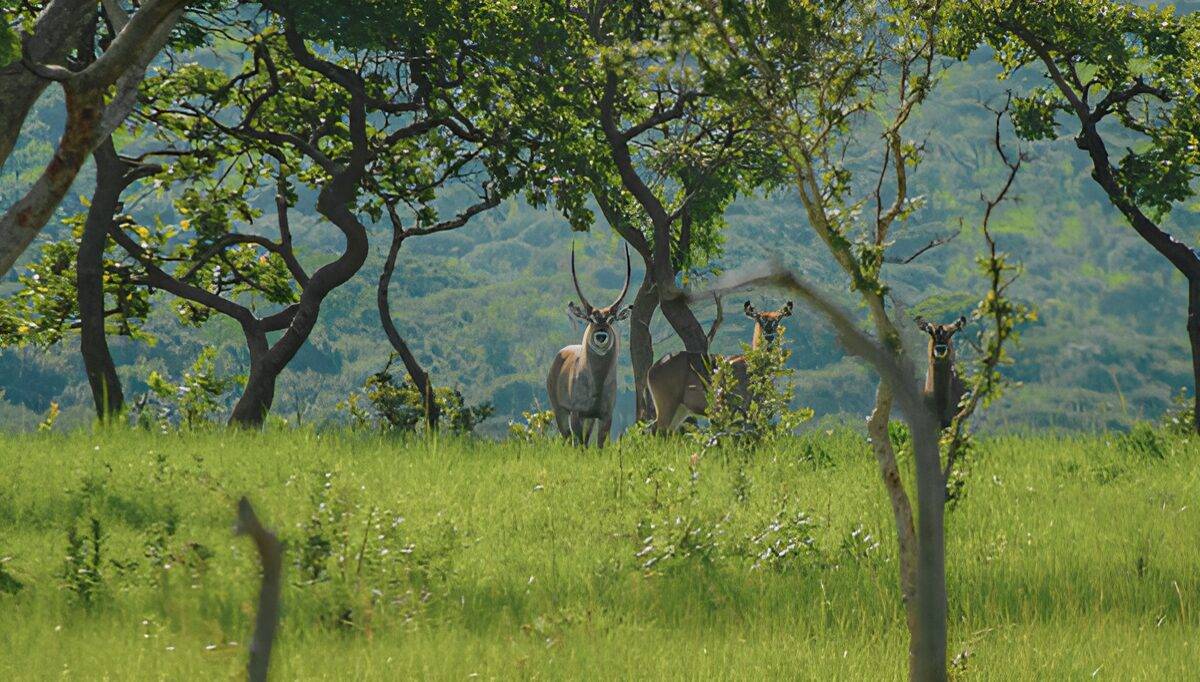Introduction
Located in eastern Burundi, Ruvubu National Park is considered one of the country's largest nature sanctuaries. Created in 1980 to protect the region's rich biodiversity, the park plays a crucial role in the conservation of Burundi's flora and fauna. It also serves as a refuge for numerous animal and plant species, some of which are threatened with extinction. Thanks to its natural beauty and diverse ecosystem, the park attracts researchers, ecologists and eco-tourists from all over the world.
Location and area
The Ruvubu National Park covers an impressive area of around 508 km² of landcovering four Burundian provinces: Karuzi, Muyinga, Cankuzo and Ruyigi. It takes its name from the Ruvubu riverwhich crosses the park from north to south, providing an essential source of water for local flora and fauna. The river also plays a fundamental role in the park's ecological balance, irrigating the surrounding plains and supporting wetlands crucial to the reproduction of certain animal species.
Thanks to its vast surface area, the park offers a wide variety of landscapes, from wooded savannahsto dense tropical foreststhrough to marshes and green meadowscreating an ideal habitat for a wide variety of wildlife.
Biodiversity and Wildlife
The Ruvubu National Park is renowned for being home to a large exceptional wildlifemaking it one of the last refuges for several endangered animal species in the Great Lakes region.
Mammals :
It is home to a wide variety of mammals, including :
- Visit African buffaloes
- Visit antelopes (like the impala and the eland)
- Visit warthogs
- Visit hippopotamuses that gather along the river
- Visit primates such as baboons, black and white colobus monkeys, and vervet monkeys
The Birds:
The park is a veritable paradise for birdwatchers, with over 200 bird speciessome of which are endemic to the region. These include :
- Black-capped Hornbill
- The fish eagle
- Giant Kingfisher
- The Crowned Crane
Reptiles and Amphibians:
There are also Nile crocodilesand snakesand various species of tropical frogscontributing to the park's ecological balance.
Flora and Ecosystems
The plant diversity of Ruvubu National Park is equally impressive. The park is home to a wide variety of plant species adapted to the tropical climate and different soil types.
The main ecosystems are :
- The wooded savannahwith acacia and eucalyptus trees
- Dense forestsproviding shelter for several animal species
- Swamps and wetlandswhich play an essential role in the reproduction of aquatic birds and amphibians.
- Grassy meadowsideal for herbivores such as antelopes
These different habitats create a natural balance that allows species to coexist and adapt to the region's climatic conditions.
Activities and Tourism
The Ruvubu National Park offers a unique unique visitor experienceWhether you're a nature, photography or adventure enthusiast.
Main activities include :
- Hiking and walking safaristo observe wildlife up close in its natural habitat
- Birdwatchinga unique opportunity to admire rare and migratory species
- Camping in the heart of natureThe park's natural environment is fully immersed in the visitor experience.
- Family picnicswhile enjoying the beauty and tranquillity of nature.
The park is also an ideal destination for researchers and environmentalistswho come to study biodiversity and local ecosystems.
Conservation and Threats
Although the Ruvubu National Park is an ecological treasure, it faces a number of challenges. major challenges :
- Poaching Illegal hunting for bushmeat and the sale of animal skins
- Illegal farming Local communities sometimes invade park land to grow crops or raise livestock
- Bush fires Often triggered by farmers to fertilize the soil, but destroying natural habitats
- Deforestation Illegal logging for charcoal and construction
Conservation efforts
To combat these threats, the Burundian government, in collaboration with environmental organizations, has set up several initiatives:
- Visit raising awareness in local communities to the importance of conservation
- Visit increased anti-poaching patrols
- Visit creation of ecotourism projects to generate income for local populations
- Visit reforestation of degraded areas to restore natural habitat
Conclusion
The Ruvubu National Park is without a doubt a natural treasure of BurundiIt is an essential part of the preservation of Africa's biodiversity. With its diverse fauna, magnificent landscapes and ecological importance, it represents a major asset for the development of Africa. ecological tourism in Burundi. However, to ensure its long-term survival, it is imperative to strengthen conservation efforts and actively involve local communities in protecting this unique ecosystem.


There are no reviews yet. Be the first one to write one.